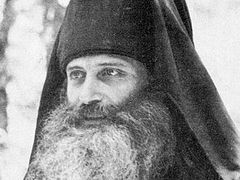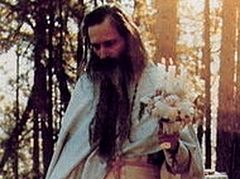The distortion of Christian equality
 Hieromonk Seraphim (Rose).
Hieromonk Seraphim (Rose). Of course, if you look at this seriously, sit down and think about it, and you read what St. Paul says about women and so forth, you have no problems. It’s all very clear that this is some kind of crazy new idea. But it is also very interesting to look at this more deeply and see where it comes from—why is there such an idea, what is it, what’s behind it?—because if you understand the strategy of the devil, you’re a little better equipped to fight against it.
This particular idea of women’s liberation can be traced back at least two hundred years. Of course, you can go back even before that, but its present form goes back at least two hundred years, to the forerunners of Karl Marx, the early Socialists. These Socialists were talking about a great new utopian age, which is going to come when all the distinctions of class and race and religion and so forth are abolished. There will be a great new society, they said, when everybody is equal. This idea, of course, was based originally upon Christianity, but it distorted Christianity, and amounted to its opposite.

There was a particular philosopher in China in the late nineteenth century who brought this philosophy to its logical conclusion, as far as it could go. His name is K’ang Yu-Wei (1858-1927). He’s not particularly interesting except as he incarnates this philosophy of the age, this spirit of the times. He was actually one of the forerunners of Mao Tse-Tung and the takeover of China by the communists. He based his ideas not only on distorted Christianity, which he took from the liberals and Protestants in the West, but also on Buddhist ideas. He came up with the idea of a utopia that was to come into being, I think, in the twenty-first century according to his prophecies. In this utopia, all ranks of society, all religious differences, and all other kinds of differences that affect social intercourse will be abolished. Everyone will sleep in dormitories and eat in common halls. And then with his Buddhist ideas he began to go beyond this. He said that all distinctions between the sexes would be abolished. Once mankind is united, there’s no reason to halt there—this movement must go on further. There must be an abolition between man and animals. Animals also will come into this kingdom, and once you have animals… The Buddhists are also very respectful to vegetables and plants; therefore, the whole vegetable kingdom has to come into this paradise, and in the end the inanimate world, also. So, at the very end of the world, there will be an absolute utopia of all kinds of beings who have somehow become intermingled with each other, and everybody’s absolutely equal.
Of course, you read about this and you say the man must be crazy. But if you look deeply, you see that this is coming from a deep desire to have some kind of happiness on earth. No pagan philosophy, however, gives happiness; no man-made philosophy gives happiness. Only Christianity gives hope for a kingdom that is not of this world. The idea to have a perfect kingdom comes from Christianity, but since the early Socialists did not believe in the other world or in God, they dreamed of making this kingdom in this world. That is what communism is all about.
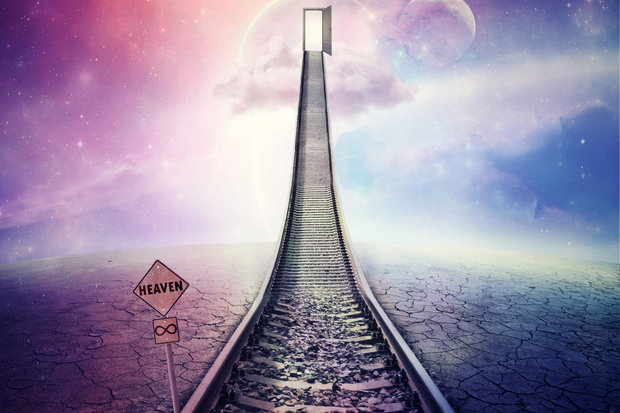
We see what happens, of course, when this idea is put into practice. You have the experiment of the French Revolution, which had apparently good ideas—liberty, equality, fraternity—or the Bolshevik Revolution, or in more recent times the various other communist revolutions. Last of all you have Cambodia, a poor little country that for three years suffered absolute communism and found that at least one-fourth of its population was exterminated because it didn’t fit. Everyone who had more than a high-school education had to be eliminated, everyone who thought for himself, and so forth. Now the regime has been overthrown by people who are a little less ruthless, but there’s nothing much to cheer about.
This shows that once you try to put these ideas into operation, you get, not paradise on earth, but more like hell on earth. In fact, the whole experiment in Russia for the last sixty years has been a proof of this, that there is no paradise on earth, except in the Church of Christ, with sufferings (cf. Mk. 10:30). Our Lord prophesied that already in this life we would receive back a hundredfold what we give, but it must be with persecutions and sufferings. Those who wish to have this happiness on earth without suffering and persecutions, and without even believing in God, make hell on earth.
“Christian” interest in UFOs
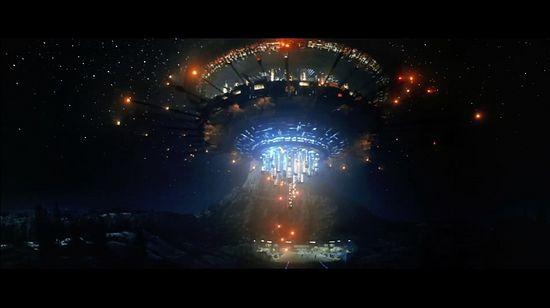 Still from the 1977 film, "Close Encounters of the Third Kind".
Still from the 1977 film, "Close Encounters of the Third Kind". A second example of a new phenomenon, which at first sight one doesn’t know what to make of, is the now very common phenomenon of UFOs, flying saucers.
There is a particular Protestant evangelist, the above-mentioned Carl McIntire,[1] who is extremely strict and righteous and very Bible-believing. He has a radio program, the Twentieth-Century Reformation, and a newspaper. He is absolutely upright—you have to separate from all people who are in apostasy—and his ideas are very nice. He’s anti-communist. He calls Billy Graham an apostate, together with everyone who deviates from the strict line of what he thinks is right. From this point of view he’s very strict, and yet you see the strangest things in his philosophy. For example, he’s building himself the Temple of Jerusalem, in Florida. He has a model of the Temple, and he wants to build it so as to make it compete with Disneyworld.[2] People will come and pay to see the great Temple that is soon going to be built for Christ to come to earth. This is supposed to provide a good opportunity to witness Christianity.
He goes in for the flying saucers, also. In every issue of his newspaper there’s a little column called “UFO Column,” and there they talk, to one’s great astonishment, about all the wonderful, positive things these flying saucers are doing. They give conferences and make movies about them.
Just recently there have been several Protestant books about UFOs, showing quite clearly that they’re demons. The person who writes the column in this newspaper got upset about this, and said that some people say that these beings are demons, but we can prove they aren’t. He says that maybe a couple of them are demons, but most of them aren’t. He cites a recent case in which some family in the Midwest saw a flying saucer. The flying saucer came down, landed, and the family saw inside little men—they’re usually four and half feet tall or so—and they sang “Hallelujah.” They stopped and looked and then they flew away; I guess they didn’t talk to them any more. And that set the family to thinking; they began to think, “Hallelujah”; they began to think about Christianity; they looked in their Bibles, and they finally ended up going to a Fundamentalist church and being converted to Christianity. Therefore, he says, these beings must be some kind of people who are helping God’s plan to make the world Christian because they said, “Hallelujah.”
Of course, if you read St. Ignatius (Brianchaninov), you will know about all the deceptions which the demons perpetrate: the demons “pray” for you, the demons make miracles, they produce the most wonderful phenomena, they bring people to church, they do anything you want, as long as they keep you in this deception. And when the time comes, they will suddenly pull their tricks on you. So these people, who have been converted to some kind of Christianity by these so-called outer-space beings, are waiting for the next time they will come; and the next time their message may have to do with Christ coming to earth again soon, or something of the sort. It’s obvious that this is all the work of demons. That is, where it’s real. Sometimes it’s just imagination, but when it’s real this kind of thing obviously comes form demons.
 Still from the 1977 film, "Close Encounters of the Third Kind".
Still from the 1977 film, "Close Encounters of the Third Kind". This is very elementary. If you read any text of the early fathers, any of the early Lives of Saints or the Lausiac History, you find many cases where beings suddenly appear. Nowadays they appear in spaceships because that’s how the demons have adapted themselves to the people of the times; but if you understand how spiritual deception works and what kind of wiles the devil has, then you have no problems in understanding what’s going on with these flying saucers. And yet this person who writes the UFO column is an absolutely strict Fundamentalist Christian. He is looking, actually for new revelations to come from beings from outer space.
Why we must have an Orthodox world-view
So, to repeat the first point: we watch the signs of the times in order to recognize Christ when He comes, because there have been many false Christs, many more false Christs will come, and at the very end of the world there will finally come one who is called Antichrist. The Antichrist will unite all those who are deceived into thinking he is Christ, and this will include all those whose interpretation of Christianity has gone off. Often you can look at some people who confess Christianity, and it seems that many of their ideas are correct—they go according to the Bible. Then you look here and there, and you see that here’s a mistake, there’s a mistake.
 Fr. Dimitry Dudko
Fr. Dimitry Dudko In the same way we can see that many people who are not Orthodox have many good things about them, and then they go off in some respect. In the end it’s up to God to judge, not to us. But we can see what will happen if all these little ways people go off now are projected into the last times, if people still believe that way when the last times come. These mistakes cause people, when they see Antichrist, to think that he is Christ. There are very many sects now that believe that Christ is coming to rule for a thousand years form the Temple in Jerusalem. Therefore, when the Jews start building the Temple, these sects will only rejoice because, to them, this is the sign of Christ’s coming. On the contrary, we know that this is the sign of the Antichrist coming, because Christ will no more come to the Temple. The Temple has been destroyed. Christ comes only at the end of the world to begin the eternal Kingdom of Heaven. The only one who will come to the Temple is Antichrist.
So, this is why the correct Orthodox Christian understanding and preparation based upon this understanding are absolutely necessary. The closer we get to the very last times, the more indispensable this understanding and preparation are.
A look at specific signs
Now let us look for just a moment at some of the signs in our times that the Second Coming of Christ, preceded by the coming of Antichrist, is close. Concerning the prophecies set forth in the twenty-fourth chapter of St. Matthew—first of all, the false christs who will come, then the wars, famines, earthquakes, persecutions—it is difficult to judge, because all these things have been happening for almost two thousand years now. It’s true that they are now on a bigger scale than ever before, but it is also true that they can be much worse yet. These signs are the beginning of signs, and are not yet so severe that we can say we are right in the very last days.
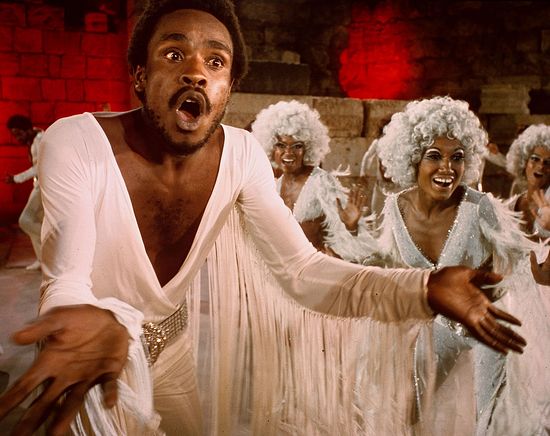 Judas in the 1973 film of the rock opera, "Jesus Christ Superstar".
Judas in the 1973 film of the rock opera, "Jesus Christ Superstar". One sign, however, is very interesting and very indicative of our times; that is that Christ is now depicted on the stage. In previous times it was never allowed that Christ should be depicted on the stage, because an actor gives his own human interpretation, and Christ is God. In Orthodoxy there is perhaps no particular canon about this, but the whole Orthodox Christian outlook is against it; and any Protestant or Catholic until the last few years would have been horrified at the idea of some actor playing the part of Christ. Now this has become common, and not only in religious contexts, but in contexts which are far from religious. Godspell, Jesus Christ Superstar, and so forth: all these are actually blasphemous parodies which present Christ in secular form for people to see.[4] This is very symptomatic of our times because it presents even to unbelieving people an image of Christ so that when Antichrist comes they will say, “Aha, I saw on the stage something like that. Yes, that must be it.”
The growing cold of love
Another very symptomatic sign of our times is the next one mentioned in this chapter of Matthew: that the love of many grows cold. This seems to be a definite characteristic of our times, to a quite greater degree than at any time in past history. One can see this in what can be called nihilism. People commit crimes for no particular reason, not for gain but just for a thrill because they do not have God inside them. In all kinds of places now, one can see the lack of normal human relationships in families, which produces cold people. It is this kind of people who, in a totalitarian society, are used as slave drivers, working in the concentration camps and so forth.
Recently we had the tragedy in Jonestown, which was composed of American citizens. The people there were idealists who devoted themselves utterly to a cause. Although it’s come out now that it was actually a communist commune, still the people were supposed to be Christians. The leader was a minister of the so-called Church of Christ, one of the mainline denominations. And yet these people, supposedly having some awareness of God and Christianity, coldly killed each other. Those who drank and administered the poison to their children did so with calm faces. There’s no problem: that’s just your duty, that’s what you’re told to do. This kind of coldness is what Christ is talking about. Any kind of normal human warmth has been abolished because Christ has gone out of the heart; God is gone. This is a frightful sign of our times. In fact, the very thing that happened in Jonestown is a warning because it looks as though much worse things are going to come. This is satan’s work, quite obviously.
Just a year or two before that occurred, we heard of what happened in Cambodia. A small party of men—some ten or twenty altogether—took a whole country in their hands and killed off at least two million people quite ruthlessly, based on some abstract ideas. We’re going to get back to the country, they said; therefore, everybody is to leave the cities. If you can’t leave the city, you die. People in the hospitals had to go from their operating tables, and if they couldn’t go, they died—they were shot and left in a ditch. Corpses were piled up in the cities—it was frightful.
This was the same kind of thing as what occurred in Jonestown: coldness based upon the idea—which looks idealistic—of bringing communism to earth. It turns out that Dostoyevsky was right. In his book, The Possessed, written in the 1870s, there was a Russian character named Shigalov, a theoretician, who had an absolute theory of how communism could come to earth. He believed that the ideal state upon earth will be true communism. Unfortunately, he said, in order to make sixty million people happy, you have to kill a hundred million people. But those sixty million people will be happier than anyone else has ever been happy, and the hundred million people will be like fertilizer for the future world paradise. It so happens that in Russia there have been exactly a hundred million people missing since 1917, of which at least sixty million were killed by the Soviets themselves.
So this sign is very, very present in our times: that love grows cold. This occurs among Christians also, not just in the world at large.
Then another sign, which in our times has reached greater dimensions than ever before, is that the Gospel is being preached in the whole world. This, of course, is true in that the very text of the Gospel is being spread in almost all the languages which are spoken on the earth now—at least a thousand languages, I think. Moreover, the Orthodox Gospel is being preached all over Africa now. We send our magazines to Uganda and Kenya, and receive letters back—very touching letters from young African boys who are converts to Orthodoxy. They have the utmost respect for their bishop; they go to seminary. It’s obvious that a very Orthodox feeling is being given to these people in Africa. They are very simple people. Orthodoxy does not have to be complicated if there are very simple people to preach the Gospel to. It’s only when others come in to challenge it and to say that the Scripture means something else, trying to give over-literal interpretations, which mean doing away with priests and bishops, etc., that the people begin to get mixed up. If they’re preached the Orthodox Gospel, simple people respond now in the same way that they’ve always responded in the past. The problem is, rather, with complicated people.
The Temple in Jerusalem
Then there is the sign of the abomination of desolation and all that relates to the Temple in Jerusalem. For the first time in history, this has now become a possibility. The rebuilding of the Temple was tried only once before, in the fourth century. Knowing about this is a very good example of how reading Church history enlightens one. We can find several sources about it from the fourth century: St. Cyril mentions it, as do several of the Church historians at that time. Julian the Apostate, because he had such a passion to overthrow Christianity, decided that, since Christ had prophesied that not one stone of the Temple would be left on the other, if he rebuilt the Temple, he would prove that Christ was an impostor, and therefore paganism could be restored. So he deliberately invited the Jews back to Jerusalem, and they began building the Temple with the blessing of Julian the Apostate. They would build a little in the daytime, and the next morning they would come and all the stones would be on the ground. They tried again and balls of fire began to come out of the earth. All the historians agree on this. In fact, modern rationalist historians, because they see that they cannot deny the texts and that something did actually happen, begin to say things like, “They must have struck oil,” or “There were underground gas flues.” It was obviously a miracle of God to keep the Temple from being built, because it was not the time—the Temple is to be built only at the very end of the world. Anyway, they finally failed in their attempt and gave up the operation. Of the few stones that remained, not one was left on the other. So the prophecy was fulfilled in the time of Julian the Apostate.
 "The Holy Land Experience" theme park in Orlando, Florida.
"The Holy Land Experience" theme park in Orlando, Florida. But now, since 1967, the site where the Temple was before is now in the hands of the Jews. Therefore for the first time, it becomes quite possible that the Temple could be built. The only thing interfering is the Great Mosque that the Moslems have there. If that’s destroyed, there will probably be a war.
Only since 1948 has there been a separate state of Jews in the Holy Land. It is to the unbelieving Jews that the Antichrist will come. He will come first to the Jews and then to the whole world through the Jews; and only as this is happening will the faithful remnant of Jews finally be converted to Christianity in the very last times.
So this sign of the Temple is a very big one. When we see the Temple being built, then we know that the time is at hand, because that is definitely one of the signs of the very end. So far, of course, it’s not being built, but there are all kinds of rumors that plans have been laid, that stones are being gathered, etc. It’s obvious that the Jews are thinking about it.
Other signs
Another sign is the fact that when Antichrist comes he is to be the ruler of the world, and only in our times has it been a practical reality that one man can rule the entire world. all world empires up until now have been only over part of the earth, and before modern communications it was impossible for one man to rule the entire world.
Furthermore, with increased communications, with atomic bombs and more advanced weapons, the possibility of a worldwide tribulation now becomes much greater than ever before. It’s obvious that the next war will be the most destructive in the history of mankind, and probably will cause, in its first few days, more damage than all the wars in history. Besides atomic weapons, there are various bacteriological weapons for spreading plagues among people, poisonous gases and all kinds of fantastic things that in an all-out war could come into play.
Also, the fact that all the peoples of the world are bound up more with each other means that when some great catastrophe comes to one country—a depression, or something of the sort—then all the rest of the world will be affected. This we already saw in the 1930s when there was a Great Depression in America and it spread to the rest of Europe. In the future it’s obvious that something much worse can occur. If one country begins to starve, or if the crops fail one year in Canada, Australia, America and Russia—all those four great countries that supply wheat—just imagine how the whole world is going to suffer.
A Warning To Those Attracted To Gloom And Doom
All these signs of the times are very negative. They are signs that they world is collapsing, that the end of the world is at hand and that the Antichrist is about to come. It’s very easy to look at all these negative signs of the times and get into such a mood that we look only for negative things. In fact, one can develop a whole personality—a negative kind of personality—based on this. Whenever some new news item comes in, one says, “Aha, yes of course, that’s the way it is, and it’s going to get worse.” The next one comes in and one says, “Yes, yes, it’s obvious that’s what’s going to happen, and now it’s going to be worse than that.” Everything one looks at is seen merely as a negative fulfillment of the horrible times.
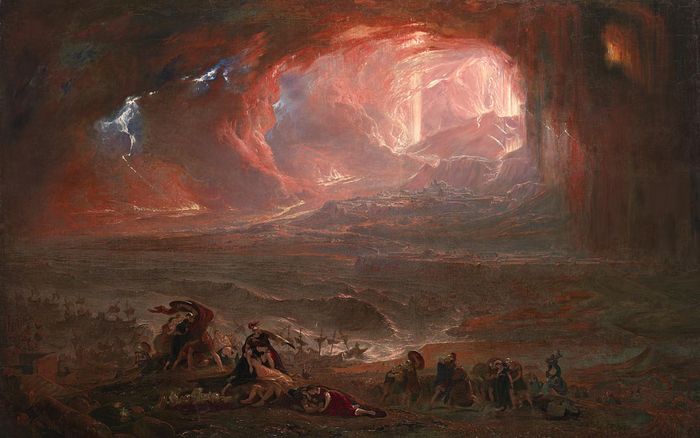 The Destruction of Pompei and Herculaneum, by John Martin.
The Destruction of Pompei and Herculaneum, by John Martin. It’s true that we have to be aware of these things and not be unduly optimistic about contemporary events, because the news in our times is seldom good. At the same time, however, we have to keep in mind the whole purpose of our watching the signs of the times. We watch the signs of the times not just so that we can see about when Antichrist is going to come. That’s rather a secondary thing. We watch the signs of the times so we can know when Christ is going to come. That is a very fundamental thing we have to keep in mind so that we do not get overwhelmed by gloom, depression, or stay to ourselves, storing up food for the great calamity. That’s not a very wise thing. We have to be, rather, all the more Christian, that is, thinking about other people, trying to help others. If we ourselves are cold and gloomy and pessimistic, we are participating in this coldness, which is a sign of the end. We have to ourselves be warm and helping each other out. That’s the sign of Christianity.
If you look at history (in fact, this is another good reason for reading Church history), you see that throughout the whole history of mankind, throughout the Old Testament, the New Testament and all the Christian kingdoms afterwards—and if you look at the pagan world, the same story—there’s a continual time of sufferings. Where Christians are involved there are trials and persecutions, and through all of these Christians have attained the kingdom of heaven.
Therefore, when the time of the persecutions come, we are supposed to rejoice. There was a good little incident related in Fr. Dimitry Dudko’s little newspaper. A woman in Russia was put in a psychiatric clinic for making the sign of the Cross in the wrong place or for wearing a cross, or something like that. Fr. Dimitry and his spiritual children traveled to Moscow, went to the clinic, made an appointment and talked to the doctor, and they finally persuaded him that she shouldn’t be there. Fr. Dimitry says, “They’re actually afraid of us, because when you press them about it, they say they haven’t really got any law by which they can keep her there.” So finally they agreed to let her go, after she had been there for a week. When she was there they gave her various drugs and “inoculations,” trying to break her down and get rid of her religion. When she came out she was a little shaken up. She sat down on a bench someplace outside the clinic and began to talk. “You know,” she said, “when I was there and they were treating me so awful, I felt calm because I felt there was Someone there protecting me; but as soon as I got out here, all of a sudden I’m afraid. Now I’m all upset and scared that they are going to come after me again, that the secret police are looking right around the corner.” It’s obvious why this is so. When you’re in conditions of persecution, Christ is with you because you’re suffering for Him. And when you’re outside, then there’s the uncertainty of whether you might not get back into that condition. You begin to go back to your own human understanding. When you’re there you have nothing else to rely on, so you have to have Christ. If you haven’t got Christ, you have nothing. When you’re outside, you begin to calculate and to trust yourself, and then you lose Christ.



